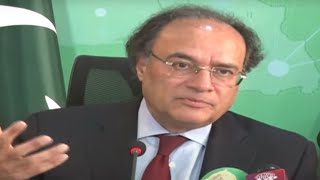Pakistan Telecommunication Authority: Issues led to disputes, litigation with service providers: AGP
ISLAMABAD: The Auditor General of Pakistan (AGP) revealed that contractual management issues in the Pakistan Telecommunication Authority (PTA) have led to disputes and litigation with service providers blocking potential revenue amounting to Rs93 billion.
The audit report on the account of telecommunication sector audit year 2019-2020 stated that spectrum management remains a contentious issue due to persistent disagreement between the PTA and Frequency Allocation Board (FAB) on the issue of award of 4G spectrum to mobile companies on basis of technology neutrality of their licenses.
Another problem that plagues the Pakistan telecom industry is grey traffic, defined as the illegal routing of calls to and from the country to avoid applicable taxes and regulatory fee.
According to the PTA, the sectors lose an estimated one billion dollar in revenue.
The report stated that unauthorised usage of F7 frequency block by CM Pak caused $9.83 million per year (Rs1,572.80 million).
It was observed that M/s CM Pak (Zong) was assigned temporary additional assignment of 2x5 MHz (11950-1955/2140-2145 MHz) for a period of two years as per the FAB 42nd Board meeting, held in February, 2016.
The additional assignment expired in February 2018 but M/s CM Pak (Zong) kept on utilising the F7 block.
The subject block had a minimum value of $147.5 million for 15 years license (per year US $9.83 million).
The FAB did not take appropriate action, which resulted in unabated use of temporary assignment causing loss to the national exchequer.
The report also observed unauthorised change of technology by WLL operator in 3.5 GHz.
It was observed from monitoring reports that WLL operators had changed their technology from WiMAX to LTE and LTE-Advanced without approval of the FAB.
The FAB management did not take appropriate regulatory action against these operations except for simply forwarding the cases to the PTA.
The report observed utilisation of spectrum without renewal of license by the SCO.
It was observed that a license was issued to the SCO on 16th May, 2003, with expiry date of 15th May, 2018.
The Ministry of Kashmir Affairs and GB forwarded a summary to the prime minister of Pakistan for grant of permission to the SCO to continue cellular communications in the AJK and the G-B beyond 15th May, 2018.
The PTA granted permission for next six months with the direction to fulfill obligations, which were pre-requisite for renewal of license.
However, the contents of the summary and grounds of renewal of license were not made available to the audit.
The extension period expired on 15th November 2018 but as per record, the license was not renewed, so far, but the spectrum was being continuously used by the SCO.
The AGP stated that the telecom sector faced numerous challenges in Pakistan requiring important multiple initiatives to harness the potential of the market.
One such challenge is the renewal of licenses of three telecom operators namely, Telonor, Zong, and Warid that was due on May 2019 upon expiry of the 15 years life.
The PTA has fixed the renewal prices at $449.2 million, which prompted the telecom operators to move the courts seeking identical treatment with Ufone, whose license was renewed at $291 million dollars, while the tree telcos have deposited 50 percent of the renewal fee litigation is depriving national exchequer of revenue and foreign exchange.
The telecommunication sector contributes significantly to the economy in the form of the FDI, infrastructure development and creation of jobs but also has been marred with issues pertaining to financial management and governance.
The report stated that telecom operators have got stay orders from courts blocking Rs93 billion revenue of the government primarily due to disputes in license agreement clauses.
Companies such as Instaphone that owe billions of rupees to the PTA were given undue leverage have defaulted on payment of regulatory dues.
The LDI companies owe Rs36 billion on account of access promotion contribution (APC) but the case is in the Supreme Court.
The perennial disagreement between the PTA, MOIT, and the Ministry of Finance on account of less deposit of dues in FCF to the tune of billions of rupees needs to be resolved at the earliest.
Audit pointed out procurement-related irregularities to the tune of Rs3.5 billion in 23 cases.
Pakistan despite witnessing dramatic growth of telecom sector is still at an early stage of development with penetration still below most other Asian countries.
Strong growth is expected in the near future mostly due to adoption of 4G LTE sand eventually with the launch of 5G survives.
Notwithstanding the fact that the telecom sector worldwide is facing revenue and growth challenges due to saturation and rapid technology changes, increasing competition and high cost, there is a lot of growth potential in the developing countries and Pakistan is no exception.
The MoIT has drafted the Pakistan Telecommunication Competition Rules, 2017; however, to improve further, substantial work is still required for designing framework for license renewal interference protection public WI FI voice over internet protocol over the top policies and national roaming.
The role of special communication organisation running commercial services in the AJK and the G-B without buying spectrum needs to be addressed.
The urgent need of intellectual property law for ICT initiatives is required as it would greatly encourage entrepreneurs to launch ICT-based companies in Pakistan.
The process of certifying of electronic transaction and services requires a little more to be done, the report recommended.
Copyright Business Recorder, 2020





















Comments
Comments are closed.